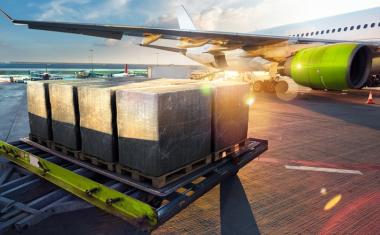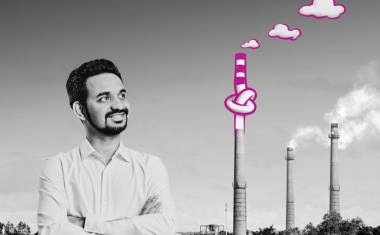GSK Says Executives Appear To Have Broken Chinese law
British drugmaker GlaxoSmithKline said on Monday some of its executives in China appeared to have broken the law in a bribery scandal, as it promised changes in its business model that would lower the cost of medicine in the country.
GSK is the latest in a string of multinationals to be targeted by Chinese authorities over alleged corruption, price-fixing and quality controls.
Chinese police visited the Shanghai office of another British drugmaker, AstraZeneca, a company spokeswoman said on Monday. The police came on Friday and took away a sales representative for questioning, she added.
GSK's head of emerging markets, Abbas Hussain, said the company had zero tolerance for employees who broke the law.
"Certain senior executives of GSK China, who know our systems well, appear to have acted outside of our processes and controls, which breaches Chinese law," he said in a statement.
Hussain, sent to China last week to lead GSK's response to the crisis, held a meeting with the Ministry of Public Security at which he also promised to review GSK's business model.
"Savings made as a result of proposed changes to our operational model will be passed on in the form of price reductions, ensuring our medicines are more affordable to Chinese patients," Hussain added.
The company gave no details on the changes or the extent of price cuts. GSK supplies key products such as vaccines in China, as well as drugs for lung disease and cancer.
Chinese police last week accused GSK of bribing officials and doctors to boost sales and raise the price of its medicines.
They said GSK transferred up to 3 billion yuan ($489 million) to 700 travel agencies and consultancies over six years to facilitate the bribes. Four senior Chinese executives from GSK have been detained.
Britain's biggest drugmaker has said it was deeply concerned by the allegations, which it called "shameful."
Last week, Chinese authorities also visited the Shanghai office of Belgian drugmaker UCB and the latest visit to AstraZeneca shows Chinese authorities are spreading their net.
AstraZeneca said it believed the case involving its employee was a local police matter.
"We believe that this investigation relates to an individual case and while we have not yet received an update from the Public Security Bureau, we have no reason to believe it's related to any other investigations," the spokeswoman said.
Chief Executive To Speak On Wednesday
In a statement, China's Ministry of Public Security said GSK's Hussain apologised for the scandal during the meeting.
He was dispatched to China last week by Chief Executive Andrew Witty, along with two other senior executives.
Witty will detail what action the drugmaker is taking in response to the bribery allegations when he presents quarterly results on Wednesday, sources said.
GSK's intention to cut the price of its medicines in China would be in line with how other foreign companies have responded to pressure from Beijing.
European food groups Nestle and Danone said they would cut infant milk formula prices in China after Beijing launched an inquiry into the industry.
"In China, when the government criticises people, they tend to bow down and apologise very quickly because they are scared of the authority of the central government to do tremendous harm to their business - whether it be for arresting executives very quickly or through auditing," said Shaun Rein, managing director of the Shanghai-based China Market Research Group.
GSK also had a fresh setback in another important emerging market on Monday when it abandoned a scheme to increase its stake in GSK Consumer Nigeria, its consumer healthcare business in the country, following opposition from minority shareholders.
Culture Of Payments
China has long been known for a culture in which drug companies make payments to doctors, since physicians rely on rewards for writing prescriptions to offset meagre salaries.
Those practices, however, are increasingly at odds with a crackdown on corruption under President Xi Jinping, leaving companies struggling to toe the line while not losing business in a highly competitive market.
Chinese state media has aired interviews with one of the detained GSK executives who has said travel agencies were used to arrange conferences, some of which were never held, to allocate money that could then be used for bribes.
One of the agencies at the centre of the scandal has been identified by state media as Shanghai Linjiang International Travel Agency.
The New York Times said documents it obtained showed that in the last three years at least six other global pharmaceutical firms, including Merck, Novartis, Roche and Sanofi, had used that agency to make arrangements for events and conferences.
The records included invoices for hotel bookings, travel visas and airline tickets to Chinese cities, and to Australia, Italy, Japan, Korea and the United States. It said the documents contained no indication of wrongdoing.
Roche said it used Shanghai Linjiang International Travel Agency among others but that once the allegations surfaced it immediately stopped working with it and began a review of its business with the agency.
Merck also said it had used the agency in the past and would no longer do so. The other drug companies could not immediately be reached for comment by Reuters.
The travel agency's business has been suspended, China's official Xinhua news agency reported last Thursday.






